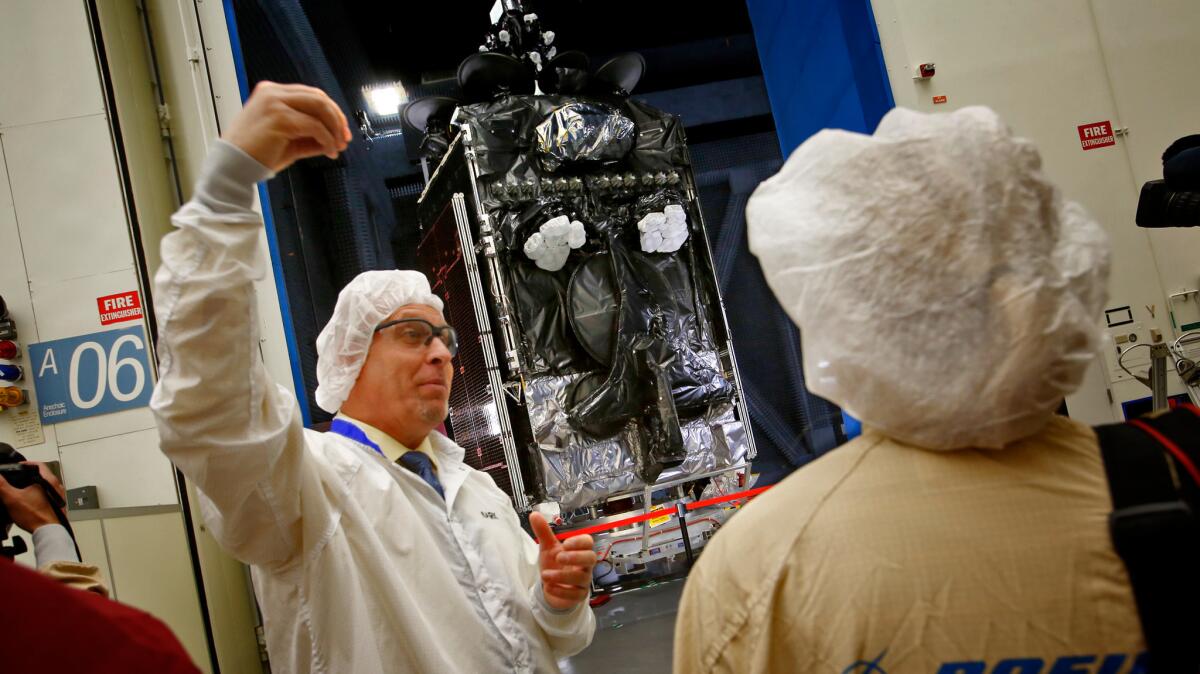Boeing applies for license to launch proposed satellite constellation

- Share via
Boeing Co. has applied for a license from the Federal Communications Commission to launch and operate a network of thousands of satellites, joining companies such as SpaceX and OneWeb in the new race to build constellations for broadband Internet access.
In its application filed Wednesday, Boeing said it planned to initially deploy 1,396 satellites into low-earth orbit within six years of the license approval.
Eventually, the aerospace giant said its system would total 2,956 satellites designed to provide Internet and communications services for commercial and government users around the globe.
Boeing said it intended to operate the satellites in the V-band spectrum, which is barely used.
SpaceX and OneWeb have both proposed constellations of hundreds or even thousands of satellites that would provide low-cost Internet access, especially in more remote parts of the world.
In its application, Boeing noted that OneWeb also intends to operate its satellites at an altitude of about 745 miles above the earth, and said it would work with the Arlington, Va., company to avoid in-orbit collisions.
Boeing is still working out whether it will actually provide the service or just make the satellites and get them into orbit, and where the satellites will be built. Boeing’s satellite business is based in El Segundo.
In a statement, the company said its plans for a broadband system are a “natural evolution and extension” of its experience with the design and manufacturing of complex satellite systems.
The number of proposed satellite constellations is reminiscent of the 1990s, when companies including Iridium and Teledesic planned to send swarms of satellites into orbit to provide mobile communications.
But entrepreneurs underestimated the cost of such networks, and ground-based cellular services ultimately undercut the proposed services.
Marco Caceres, senior space analyst for the Teal Group, said the new plans for satellite constellations are driven by the potential of increased access to and new uses of the Internet.
“Everybody’s trying to propose these massive constellations and be the first one to get it up there and take advantage of creating a whole new market,” he said. “No one wants to be left behind.”
But he said these companies face a similar challenge as the companies from the past: finding enough investment capital to build the networks. And if they all make it up there, there will be questions of whether there is enough frequency space for all to operate.
“Only a handful of companies will succeed, if that many,” he said.
For more business news, follow me @smasunaga
More to Read
Inside the business of entertainment
The Wide Shot brings you news, analysis and insights on everything from streaming wars to production — and what it all means for the future.
You may occasionally receive promotional content from the Los Angeles Times.







